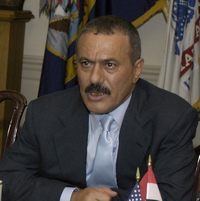For the last month, Washington has been abuzz with talk about what the United States government should do about Yemen. Should the U.S. give Yemen more military aid? Should it begin a large-scale economic assistance program? Should it help Yemen establish a governmental reform program, help implement a de-radicalization program, or boost special forces training? Yemen is a weak and poor nation, and the United States is a strong and wealthy one. With the right package of assistance, most assume, we can work together on shared goals.
The reality is messier than that, though. From a Yemeni perspective, the common threats are few. For Yemen's long-serving president, Ali Abdullah Saleh, al-Qaida in the Arabian Peninsula is a third-order issue, far less troubling than boiling insurgencies in the north and south of the country, swiftly dwindling oil revenues, a plummeting water table and massive unemployment. In fact, to many among Yemeni's leadership, al-Qaida's 200 to 300 followers in the country must seem to be less a threat than an opportunity. An increased U.S. military commitment to Yemen would pump weapons and training into the country that can be employed against a wide range of threats that have nothing to do with al-Qaida. A flood of money would create opportunities not only for contracting, but for graft, corruption and extortion.
This would not be the first time that the government of Yemen has tried to turn hardship into opportunity. In the past, rather than try to tamp out religious radicalism in the country, the government of Yemen has tried to co-opt its leaders and employ them in fighting the country's northern rebellion.

